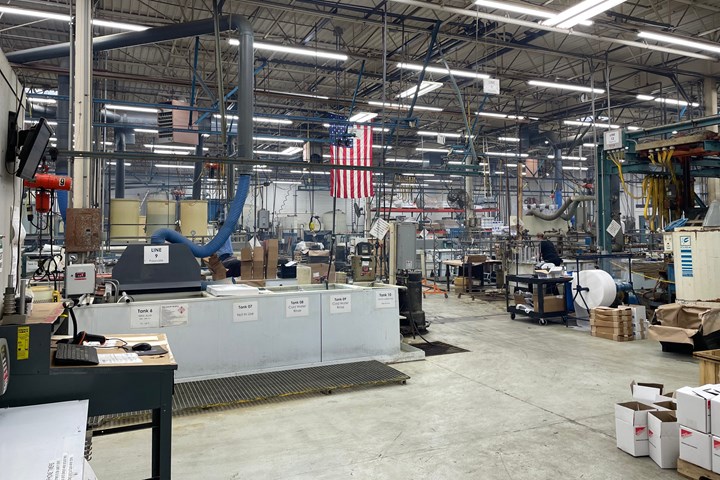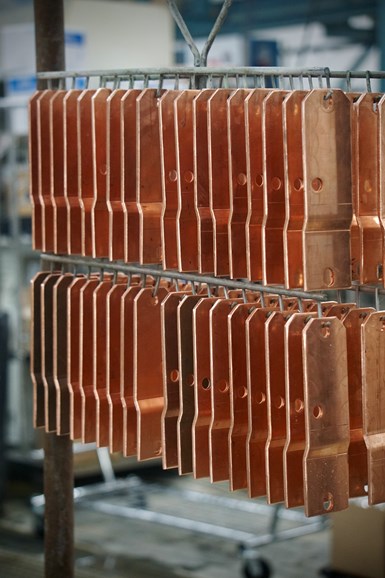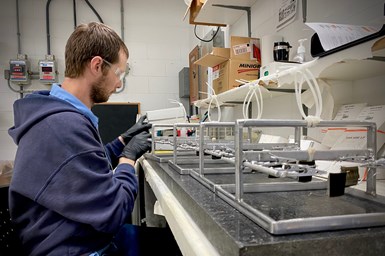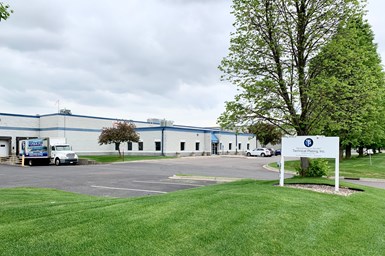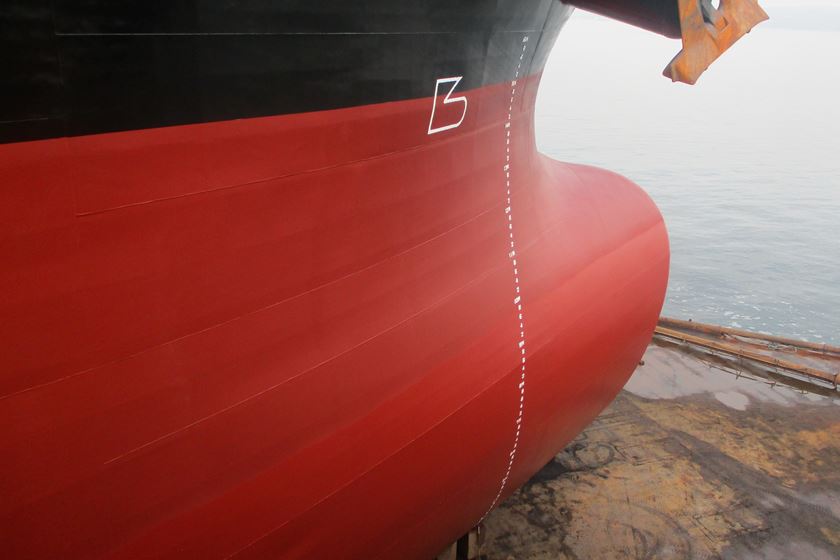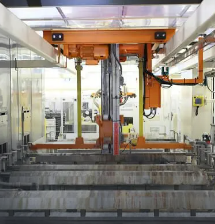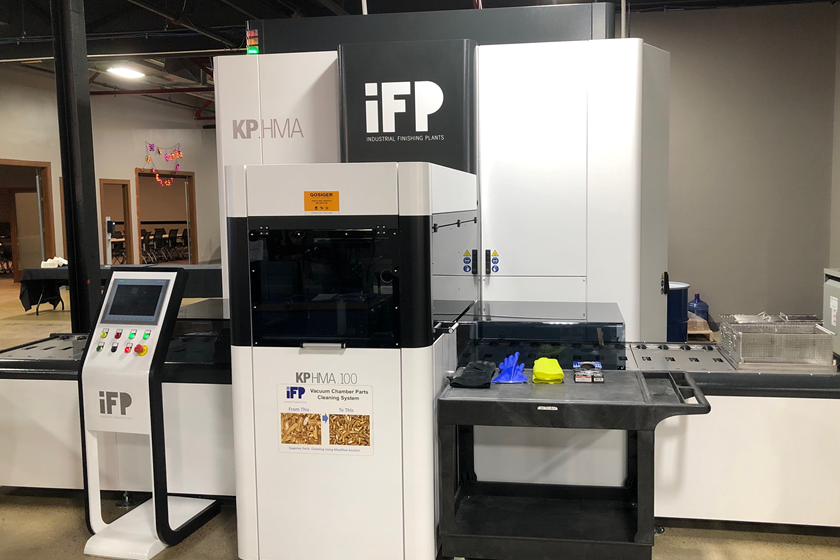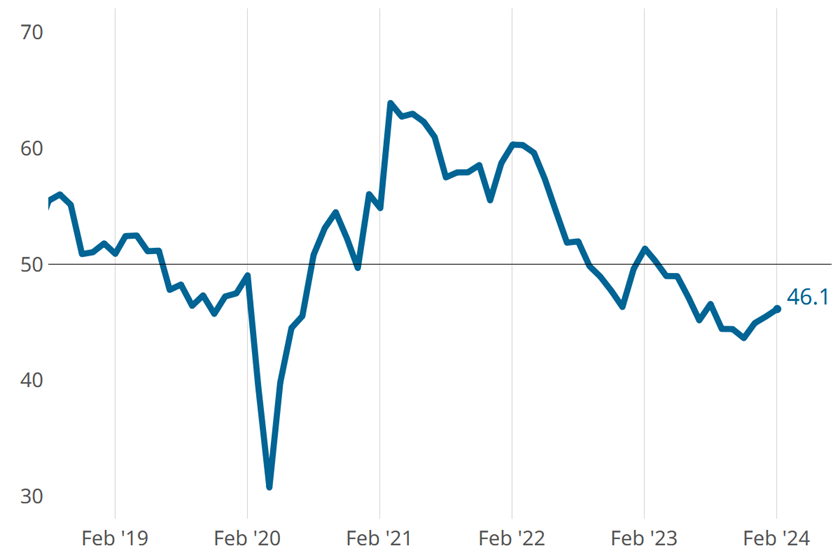Q+A: Electroplating and Anodizing Top Shop, Technical Plating
Appears in Print as: 'Technical Plating Talks Shop'
Technical Plating was recently named a Products Finishing Top Shop. We spoke with shop manager and vice president (and 40-Under-40 member) Tyler Thomas to learn more about how the shop runs.
#topshops #workforcedevelopment #40-under-40
Technical Plating, located in Brooklyn Park, Minn., specializes in tin plating, electroless nickel plating and passivation, and was named one of Products Finishing’s 2021 Top Shops in the electroplating and anodizing category. We recently checked in with Tyler Thomas, Technical Plating’s vice president and general manager — and member of PF’s 40-Under-40 Class of 2019 — to talk shop.
PF: Can you give a brief overview of Technical Plating’s facility and what processes it runs?
Featured Content
TT: We specialize in tin plating, electroless nickel and passivation. We do bright tin, matte tin and tin lead. We also do high-, medium- and low-phosphorous electroless nickel, as well as nickel Teflon. Our passivation department performs both nitric and citric methods. Other capabilities include reel-to-reel plating, bright nickel plating, brass and copper etching and bright dipping.
Over the past few years, we’ve increased our capacity by adding more lines. We’ve got a total of seventeen lines. And we have a new line in the works too, which will be taking up the last piece of real estate in the building as far as processes go.
Technical Plating’s facility is capable of reel-to-reel plating, bright nickel plating, brass and copper etching and bright dipping. Photo Credit: Technical Plating
PF: What industries do you service, and what types of parts do you usually run?
TT: The biggest industries that we service are aerospace, defense, telecom, battery and medical.
We do a variety of different things, from solderless connectors to military parts to catheters and surgical staples. It’s kind of a whole gamut of things we do.
PF: How many parts does Technical Plating produce annually?
TT: Seven to 10 billion parts. We have over 55 new customers this year alone. Our customer list is 300+ and growing.
PF: Technical Plating has a testing laboratory for its parts. What can you tell us about the lab?
TT: Being a NADCAP-accredited shop, we have to keep incredibly tight parameters on all of our baths and tanks. In our lab, we do passivation testing, which consists of water, immersion, humidity and copper sulfate. We also do solder testing for tin and for nickel, and are constantly looking for new, better tests that we can bring in-house. We also have an oven that’s NADCAP accredited to AMS 2750, which we can do hardening and pre-treating of parts pre- and post-plating.
Overall, we can do most testing that our specifications require, except for salt spray, which we outsource. I think most shops have testing capabilities, but I’m not sure that they have them to the extent of what we do. Our customers know they’re getting a certification from us; they know that everything is done correctly, documented and done right the first time.
PF: Environmental initiatives seem to be at the core of Technical Plating’s work.
TT: Absolutely — being in the “Land of 10,000 Lakes,” we don’t want to pollute. We have a state-of-the-art waste treatment system. We run a lot of water every day, but we’re able to run a lot of it back to our lines, and the rest we press out into a metal hydroxide sludge to recycle. We just try to make sure we’re running the most efficient waste treatment we can, because it’s something you have to do right. We’ve got our ISO 14001 certification to show our customers that we try to go above and beyond as far as our environmental footprint.
PF: Technical Plating was recently named one of PF’s Top Shops, and you are a member of our 40-Under-40. What do these achievements mean to the company?
TT: It’s an honor to be on those lists. We work really hard here to be the best we can be. We’ve had rough years in the past, but by investing in our quality systems and having a continuous improvement mindset, we are finding ourselves in a great strategic position. If we keep our foot on the gas and keep putting quality and communication first, we can continue to grow. Word of mouth travels quickly, and having those accolades helps get our name further and further out there.
PF: What does Technical Plating’s relationship with its customers look like?
TT: We like to form a somewhat close relationship with our customers. A lot of our customers come to us with problems that others can’t solve, whether it’s something we can fix, something we can provide an alternative for, or something they just need confirmed or double-checked. We take on projects that some shops either can’t do, won’t do, or just struggle with, and can often provide a solution. We like to be very communicative and put the time and effort into helping wherever and however we can.
PF: What is the team dynamic like at the shop?
TT: Our management team has a couple of staff meetings a week, but even outside of that we’re always communicating on the floor and working together. We all wear many hats. We put an emphasis on open and frequent communication, both within the shop and within the management team. Creating an environment that allows for such open communication, while still having clearly defined roles, leads to accountability and ownership of what you do. This means that people feel confident and safe to communicate information or new ideas with each other and with management. We understand how important it is to look for opportunities to learn and improve in every situation that we can. We’re running a well-oiled machine at the moment, and it’s a good feeling when things are going smoothly.
RELATED CONTENT
-
40-Under-40: Class of 2016
Young professionals are a vital asset to the finishing industry. Products Finishing is recognizing the industry’s top young talent through an annual 40-Under-40 program.
-
40 Under 40: Class of 2020
Products Finishing’s 40 Under 40 award program recognizes young professionals in the finishing industry.
-
Are Ionic Liquids Right for Your Parts Cleaning Job?
Ionic liquids have also been considered for parts cleaning applications because of their negligible vapor pressure, high thermal and electrochemical stability, and low melting points of less than 100°C.



